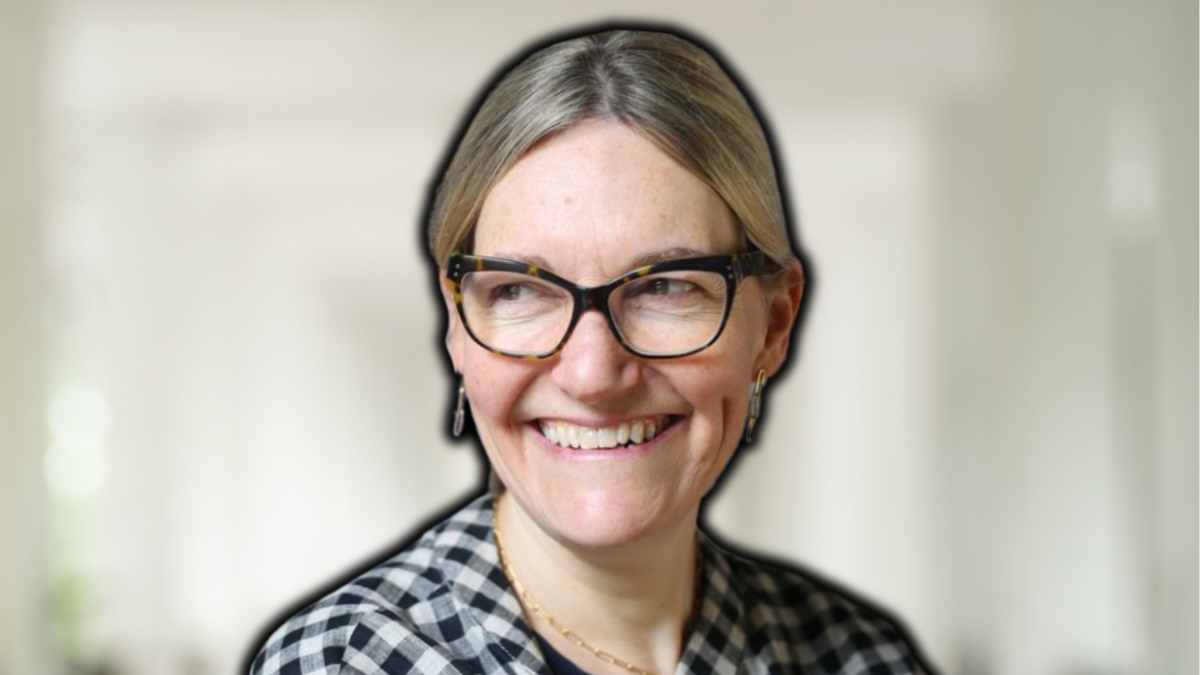Tanya Ronder: A Creative Force in British Theatre and Storytelling

Tanya Ronder is one of the most distinctive and versatile figures in modern British theatre. A playwright, screenwriter, former actor, and teacher, she has carved out a career that bridges artistic disciplines with a rare sense of authenticity and humanity. Her works explore identity, relationships, power, and the subtle layers of the human condition, earning her critical acclaim and a loyal following in both theatre and literary circles. From her early days at the Royal Academy of Dramatic Art (RADA) to her celebrated adaptations and original stage plays, Tanya Ronder’s journey is one of creative evolution, emotional intelligence, and deep commitment to storytelling.
Early Life and Background
Born in Edinburgh in 1965, Tanya Ronder grew up surrounded by creativity. Her father, Jack Ronder, was a noted Scottish screenwriter and author, known for his historical and socially conscious works. This literary and artistic environment inspired Tanya to develop a fascination with words, characters, and the transformative power of performance. From a young age, she displayed a natural talent for empathy and observation—qualities that would later define her voice as a writer and actor.
Her formal training began at RADA, one of the most prestigious acting schools in the world. There, she learned the discipline of stagecraft, the emotional precision required for great acting, and the psychological depth of storytelling. RADA would later become a central institution in her life once again, not only as an actor but as a respected teacher and mentor.
Acting Career and Transition to Writing
For many years, Tanya Ronder worked as an actor on stage and screen, earning recognition for her emotional depth and nuanced performances. However, her creative spirit was restless. Acting gave her a powerful understanding of character, but she longed to explore the broader canvas of storytelling. This internal calling led her to transition from performing to writing—an evolution that would eventually redefine her artistic identity.
Ronder’s move to writing was not merely a career shift but an expression of artistic necessity. She had lived inside scripts long enough to know their architecture intimately, and this experience made her uniquely qualified to create her own. Her first ventures into adaptation were met with enthusiasm, as she brought a fresh emotional truth to existing works. Over time, she developed a distinctive writing style—lyrical yet grounded, bold yet compassionate.
Major Works and Adaptations
Tanya Ronder’s name became synonymous with high-quality adaptations and original plays that captured both critical and public attention. Among her most acclaimed works are Vernon God Little, Table, Dara, Liolà, Peribanez, Filumena, and Blood Wedding.
Vernon God Little, adapted from DBC Pierre’s Booker Prize-winning novel, premiered at the Young Vic Theatre. The production was a huge success, earning Olivier Award nominations and introducing Ronder as one of the most talented new playwrights of her generation. Her adaptation managed to balance the biting satire of American society with a poignant exploration of alienation and innocence.
Her original play Table premiered at the National Theatre’s The Shed, showcasing her gift for weaving intergenerational stories that explore memory, belonging, and human resilience. The play followed a family through six generations, connecting themes of faith, love, and loss in a structure that was both intimate and epic.
Ronder’s adaptation of Dara at the National Theatre further cemented her reputation. The historical play, originally written by Pakistani playwright Shahid Nadeem, delved into the Mughal Empire’s ideological and religious conflicts. Ronder’s version brought universal relevance to the story, examining the tension between tolerance and extremism with intellectual clarity and emotional power.
Other remarkable adaptations include Liolà (based on Luigi Pirandello’s work), Filumena (Eduardo De Filippo), Peribanez (Lope de Vega), and Blood Wedding (Federico García Lorca). Each project displayed her sensitivity to cultural nuance, her respect for the original material, and her ability to breathe new life into classic texts.
In recent years, her musical Hex at the National Theatre, co-created with composer Jim Fortune, demonstrated her ability to expand beyond traditional theatre. The show offered a refreshing take on the fairy-tale world, blending wit, dark humour, and emotional sincerity into a memorable production.
Film and Television Contributions
While Tanya Ronder is best known for her theatrical work, she has also contributed to film and television as a writer and actor. Her credits include the short films Sisters and King Bastard, both of which showcase her interest in exploring human connections and internal conflicts. Her ability to translate emotional authenticity from stage to screen further proves her versatility as a storyteller.
As an actor, she appeared in various productions throughout the 1970s and 1980s, including Survivors and Superstition. These early experiences not only developed her technical understanding of performance but also deepened her appreciation for narrative rhythm and visual storytelling.
Teaching and Mentorship
Beyond writing and performing, Tanya Ronder has made significant contributions to arts education. She serves as an Associate Teacher at RADA, where she teaches writing, adaptation, and play development. Her classes focus on developing writers’ authentic voices and helping students bridge the gap between personal experience and creative expression.
Ronder has also taught at the Bush Theatre, the Arvon Foundation, Theatre503, and the University of Sussex. She believes deeply in mentorship and often emphasises the therapeutic and psychological dimensions of creative work. Her approach to teaching combines the rigour of professional theatre with the empathy of psychological insight—a rare blend that resonates strongly with young artists.
Coaching, Psychology, and Personal Growth
In addition to her artistic achievements, Tanya Ronder is a certified coach and practitioner of psychotherapy. She holds a Postgraduate Certificate in Coaching Psychology from Birkbeck, University of London, and has completed training in the Fundamentals of Psychotherapy and Counselling at Regent’s College.
Her coaching practice is grounded in the Internal Family Systems (IFS) model, a compassionate and integrative approach that helps individuals understand and harmonise different parts of their psyche. Through this work, Ronder helps clients overcome creative and emotional blocks, build resilience, and reconnect with their inner authenticity.
She also has a background in yoga, specifically Iyengar Yoga, and continues to integrate mindfulness and embodiment into her coaching sessions. Her ongoing MSc in Psychology and Neuroscience of Mental Health at King’s College London reflects her commitment to bridging science, art, and mental wellbeing.
Philosophy and Creative Vision
At the heart of Tanya Ronder’s work lies a belief in the transformative power of stories. She views storytelling not only as entertainment but as a tool for healing, self-discovery, and connection. Her characters often struggle with moral dilemmas, identity crises, or intergenerational trauma—reflecting her deep understanding of psychological truth.
Ronder’s theatre is marked by emotional honesty, intricate structure, and cultural sensitivity. She is unafraid to tackle complex topics such as religion, politics, and gender but always grounds them in the human experience. Her writing style is lyrical without being overly ornate, and her dialogue often captures the rhythm of real conversation while maintaining poetic undertones.
Her dual background in acting and psychotherapy gives her a rare ability to write characters who feel deeply alive. Whether portraying a historical figure, a modern teenager, or a mythic spirit, Ronder’s creations invite empathy and introspection.
Recognition and Legacy
Over the years, Tanya Ronder’s plays have been performed in some of the most prestigious theatres in the UK, including the National Theatre, the Almeida, and the Young Vic. Her work has been nominated for multiple awards, and her influence continues to grow within the British arts community.
Beyond accolades, her true legacy lies in her multidimensional approach to creativity. By merging the worlds of theatre, psychology, and teaching, she has become a mentor figure for a new generation of writers and performers who see the arts not merely as performance, but as a journey toward understanding the self and the world.
Future Endeavours
As she continues her academic research in neuroscience and mental health, Tanya Ronder is poised to bring even more depth to her future projects. Her next creative chapter is likely to explore the intersection of storytelling and psychological science—a space where art and healing meet.
Her recent focus on coaching and internal transformation suggests that she may increasingly use writing and performance as therapeutic tools. Whatever form her future work takes, it will undoubtedly continue her lifelong commitment to empathy, truth, and artistic integrity.
Conclusion
Tanya Ronder’s life and career reflect a rare synthesis of intellect, creativity, and compassion. From her early years as an actor to her evolution into a celebrated playwright and teacher, she has shown that art is most powerful when it springs from an authentic human connection. Her writing continues to challenge audiences to look inward, to question their beliefs, and to rediscover their shared humanity.
In an age where the boundaries between art, therapy, and education are increasingly fluid, Tanya Ronder stands as a beacon of what is possible when these disciplines converge. Her story reminds us that creativity is not just about producing works of art—it is about transformation, understanding, and the courage to explore the complexities of being human.



